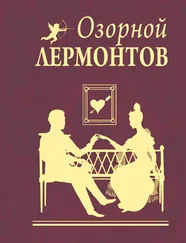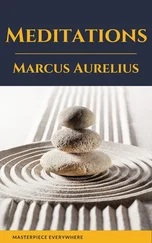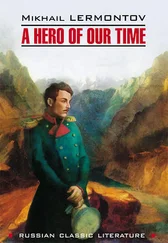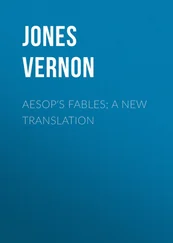dzhigits: Caucasian horsemen known for equestrian feats and trick-riding.
galloon: Braid or lace made of metal, typically used in military uniform.
chamois: A goatlike animal native to the Caucasus mountains.
abreks: A kind of freedom-fighter in the Caucasus. This word is also used to describe bandits and outcasts.
beshmet: A kind of quilted coat.
“Yakshi tkhe, chek yakshi!”: This means “A good horse, very good!”
gyaurs: Non-Muslims. The word is a Turkic version of the Persian word for infidel.
Karagyoz: A Turkic name, which literally means “black eyes,” but also refers to a Turkish shadow puppet, popular for many centuries in countries near Turkey.
Yok: This means “no” or “not.” It is said to be Tatar.
gurda: An expensive weapon made of high-quality steel.
Padishah: This was a title for the Sultan of Turkey.
There is a footnote here in Lermontov’s original: Я прошу прощения у читателей в том, что переложил в стихи песню Казбича, переданную мне, разумеется, прозой; но привычка — вторая натура. (Прим. Лермонтова.)
yashmak: A type of Turkish veil worn by women.
Urus—yaman, yaman!: This means “The Russian is bad, bad!”
peri: A term of endearment referring to fairylike creatures who are fallen angels.
muzhik: A male Russian peasant.
Russ: An older word meaning “Russian man.”
dear little: this refers to provincial Russian cities and has a slightly pejorative tone (hence the italics, which were in Lermontov’s original).
Krestovaya: This is a mountain, the name of which translates as “Mountain of the Cross.”
Nightingale-Robber: A figure from Russian folklore who wrought havoc and was able to render people immobile by whistling.
lezginka: A folk dance of the Lezgin people.
sazhen: An obsolete Russian measurement equal to seven feet.
thermalam: Fabric used for lining, usually linen or cotton.
dolman: A Hungarian jacket.
Balzac’s thirty-year-old coquette: This refers to Honoré de Balzac’s novel La Femme de Trente Ans (1834).
Rousseau’s confessions: This refers to Les Confessions by Rousseau.
izba: A traditional Russian log house.
fatera: This word means quarters.
slobodka: A settlement exempted from normal State obligations.
On that day the dumb shall cry out: A reference to the Bible, Isaiah 35:5-6: “Then shall the lame man leap as an hart and the tongue of the dumb sing.”
uryadnik: A Cossack NCO, a noncommissioned officer.
rusalka: A water nymph, frequently demonic, who lives underwater, often at the bottom of rivers.
La Jeune-France: A group of young French writers of the 1830s who are known to have exaggerated the theories of Romanticism. They looked up to Victor Hugo.
Mignon: A character in Goethe’s novel Wilhelm Meisters Lehrjahre.
The opening line of a short poem by Alexander Pushkin titled “The Cloud” (1835).
whist: A trick-taking card game played by four players. It was popular in the eighteenth and nineteenth centuries.
fichu: A triangular scarf worn around the neck.
à la moujik: This means “in the peasant style.”
“Mon cher, je haïs les hommes pour ne pas mépriser, car autrement la vie serait une farce trop dégoutante”: “My dear friend, I hate men in order not to despise them, otherwise life would be a most repulsive farce.” (French)
“Mon cher, je méprise les femmes pour ne pas les aimer, car autrement la vie serait un mélodrame trop ridicule”: “My dear friend, I despise women in order not to love them, otherwise life would be a most ridiculous melodrama.” (French)
cherkeska: A Circassian tunic, worn over the beshmet.
Beshtau, Zmeinoi, Zheleznaya, and Lisaya: The translation, from Turkish and Russian, of these names: Five-mountains, The Snake, The Iron One, The Bare One.
“Mon dieu, un Circassien!”: “My God, a Circassian!” (French)
“Ne craignez rien, madame—je ne suis pas plus dangereux que votre cavalier.”: “Fear not, madam—I am no more dangerous than your cavalier.” (French)
Nogay wagon: The Nogays are an East Caucasian people.
C’est impayable!: “That’s priceless!” (French)
This is a reference to Pyotr Pavlovich Kaverin, a friend of Pushkin’s who served in the same regiment as Lermontov, and who is mentioned in the first chapter of Eugene Onegin.
Library for Reading: A journal of the 1830s and 1840s (Biblioteka dlya Chteniya), which published memoirs and foreign novels, among other things.
souls: Serfs in Russia were counted as “souls.”
From act 3, scene 3 of Woe from Wit by Aleksandr Griboedov. It is slightly misquoted by Lermontov here.
The cold observations… : A fragment from Eugene Onegin by Alexander Pushkin.
vampire: The vampire referred to here is the hero of a story by John Polidori called “The Vampyre,” about a young man who negotiates society by wreaking havoc on the virtuous and encouraging the sinister.
son coeur et sa fortune: His heart and his fortune. (French)
arkhaluk: A Caucasian coat.
“É finita la commedia!”: “The comedy is finished!” (Italian)
stanitsa: A large Cossack village.
Boston: A card game.
faro: A card game that was popular in the eighteenth and nineteenth centuries, involving an entire pack of playing cards and any number of players.
stuss: A variant of the card game faro.
Читать дальше
Конец ознакомительного отрывка
Купить книгу
![Михаил Лермонтов A Hero of Our Time [New Translation] обложка книги](/books/27671/mihail-lermontov-a-hero-of-our-time-new-translati-cover.webp)










